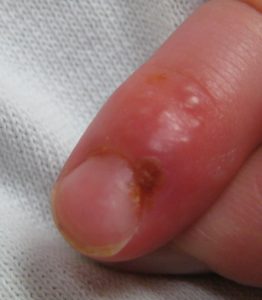Some times baby boys are born with an extra flap of tissue in the tube that leads out of the bladder called the urethra, it is unclear why exactly this happens, but sometimes genetics may be at fault here. This extra flap prevents urine from properly leaving the body, as other children without this flap have been known to have really strong urine flow,
This weak flow may mean that urine both accumulates and flows back into the bladder and then kidneys which may cause swelling and damage to these organs
There are two kinds of this extra tissue called the anterior and the posterior valves, but the posterior is by far the most common of these valves
These valves are congenital, what this means is that babies are born with them, the body sends signals to tell different tissues to stop growing, however it seems that the valves don’t get the message or the message never gets sent and they keep growing,
The posterior urethral valve is the most common of the two. Boys born with this condition have a 25% chance of having kidney failure over the course of their lives and so should be treated
How do I know my baby has posterior urethral valves?
In many cases, usually the mild ones, there may not be any symptoms until about 10 years of age, however, in serious cases, the first symptom may even present as a newborn as hydronephrosis (swelling of the kidneys)
The most common symptoms can be:
- A weak urine stream, very noticeable
- an enlarged bladder, which may be seen through the abdomen as a large mass
- infections of the urinary tract, in newborns
- crying when urinating or painful urination
- weak urine stream
- peeing too often
- bedwetting or wetting pants after your child has been potty-trained
- poor weight gain
- difficulty while urinating
Severe cases can lead to the following medical complications
- Dilation/swelling of the kidneys)
- bladder dysfunction
- renal function impairment and an increased risk of kidney failure
- when urine flows backwards from the bladder up to the kidneys called a reflux
- problems with the lungs
How will my baby boy be treated?
It takes a team to treat your boy, from urologists, to nephrologists, to radiologists, paediatricians etc, so your baby is in safe hands, however, it also depends on how severe your baby’s case is, it may be corrected with surgery, while the bladder and kidney functions are monitored well
Always speak to a doctor about your fears, speak up whenever you can
Was this article helpful?









2 responses
Is it normal for girls to have this symptoms too?